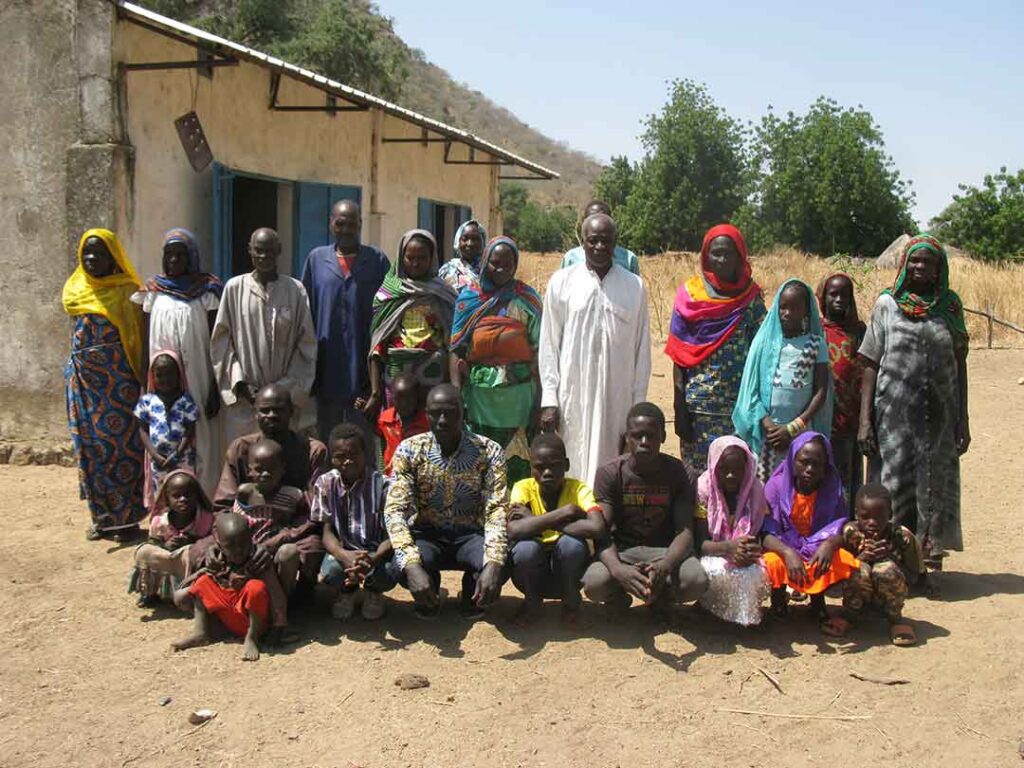Chad: a “small flock” of Christians in the desert
Bishop Philippe Abbo Chen is the first native head of the Apostolic Vicariate of Mongo, in eastern Chad. During a recent visit to the international headquarters of Aid to the Church in Need (ACN), he spoke to Sylvain Dorient, describing a territory in the heart of the Sahara Desert, inhabited by a large Muslim majority, and where the Christian community plays a missionary role.

The Apostolic Vicariate of Mongo includes a large tract of desert. Could this be described as an atypical region?
Our vicariate covers the eastern half of Chad, which is more than 500,000 km², around the size of France! About 1.7 million people live in this territory. The low population density is explained by the aridity of the land. Muslims make up the largest proportion of the population, there are only just over 15,000 Christians living there. Despite being a region with few resources, it has also taken in a massive influx of refugees fleeing from Sudan.
How has the war in Sudan affected you?
Over 100,000 refugees have moved into the vicariate, with no resources whatever. The majority are children, the elderly and women. I saw one group remove their veils and attach them to an emaciated tree, to get some shade. We are doing what we can to help them, with the resources that we have, but they are limited. What is more, we have our own problems with age-old internal conflicts between farmers and pastoral nomads.
What sort of conflict is this between the farmers and the nomads?
In most cases we are talking about herds from the north which roam freely over the cultivated lands in the south. The fields have no fences, so the animals end up damaging the crops. When the farmer confronts the herder, things often escalate. Then everybody calls a brother or a cousin and the argument turns into a fight! Unfortunately, many of the nomads are well armed. In late August I was called to go to the site of one of these conflicts, in Mangalmé, 100 km from Mongo. A man had tried to get two oxen off his field, and it escalated into a major fight, with knives. Ten people were killed!

As a Christian bishop, why is it that you are called to intervene in such a dispute?
Both the attackers and the victims were Muslims, but there is great respect for religious leaders in our region. I was asked to go there as a man of God. I was able to meet with the victims, as always, the attackers had vanished into the desert. Unfortunately, this type of violence only increases over time.
What do you believe has caused this increase in violence?
There are many factors. On one hand, the desert is increasing, and the pastoral lands are diminishing. The population of Chad is also increasing, which leads to struggles over resources, made worse by the proliferation of firearms. The simplest of arguments can escalate very quickly when AK47s are involved! Finally, the Chadian state has been going through a crisis of authority since the death of President Idriss Déby, in April 2021. We are concerned about the future of the country. The education system is falling apart, food prices have tripled. In this context, our Church serves as a refuge.
Are Christians discriminated for their faith?
Sometimes our parishioners tell us that they are afraid to show their faith in certain environments. Generally, though, we are perfectly free to live out our faith. We can ring our church bells and hold processions in the streets.
However, over the past few years we have had some problems with young imams who return from training in Sudan and subscribe to a narrower view of Islam. They refuse fraternal relations with members of other religions. This could turn into a long-term problem.

Finally, conversions are often badly received by the families. One of my brothers converted to Islam, and I have a good relationship with him, but it’s not always that easy. In my country people do not exist as individuals, they exist as part of a group. That is why this sort of more individual approach generally doesn’t go down well, especially when it is a Muslim who converts to Christianity. This year we had three cases of violence in families of converts who, therefore, ended up not being baptised.
Despite all the difficulties, you are about to ordain two new priests for the vicariate. This is impressive for a community of 15,000! How do you explain having new vocations in such a difficult environment?
We have a vibrant Church! I would also like to take advantage of this interview to thank ACN, which helped cover the educational costs of these two seminarians. The cathedral of Mongo, which was built less than a decade ago, is already too small to host all our faithful, which is why we have to have several Sunday Masses. We have hundreds of baptisms every year. Our community is only a small minority, in an immense territory, but it has a unique evangelising mission.


